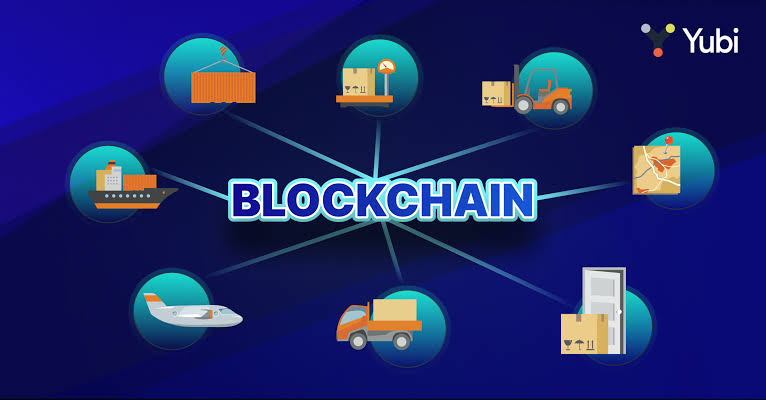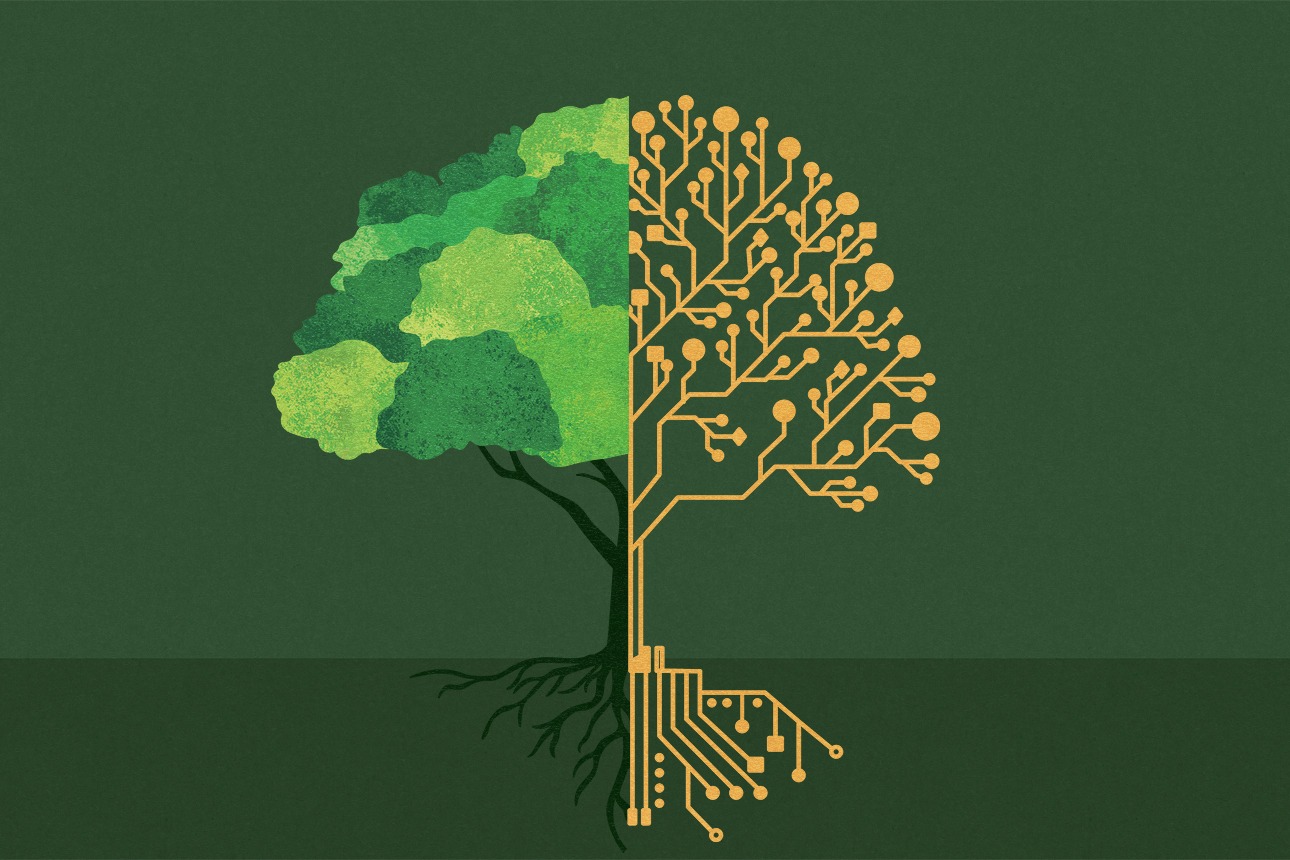
Blockchain in Supply Chain Transparency and Trust
Blockchain technology is revolutionizing supply chain management by increasing transparency and trust among participants. Its decentralized, immutable ledger allows real-time tracking and verification of goods, reducing fraud and counterfeit risks. Smart contracts automate processes, improving efficiency and lowering costs.
✨ Raghav Jain

Introduction
In today’s global economy, supply chains have become increasingly complex and interconnected. Products often travel thousands of miles, passing through multiple hands before reaching the end consumer. This complexity poses significant challenges in ensuring transparency, accountability, and trust throughout the supply chain.
Consumers, regulators, and businesses alike demand greater visibility into how products are sourced, manufactured, and delivered. They want assurance that ethical, environmental, and safety standards are met at every step.
Blockchain technology, with its decentralized, tamper-proof, and transparent nature, has emerged as a revolutionary tool to address these challenges. It offers new ways to build trust and increase transparency in supply chains by enabling secure and immutable record-keeping that all participants can verify.
This article explores the role of blockchain in supply chain transparency and trust, its benefits, challenges, and real-world applications transforming industries worldwide. The complexities of modern global supply chains, characterized by myriad participants, intricate logistics, and vast geographical distances, have long presented profound challenges in establishing and maintaining genuine transparency and immutable trust. Traditional supply chains often operate as a series of disconnected silos, relying on centralized databases, paper-based records, and intermediaries, making it incredibly difficult to trace a product's journey from raw material to consumer with verifiable certainty. This opacity breeds numerous problems: counterfeiting thrives, ethical sourcing claims are hard to validate, product recalls are inefficient and costly, and consumer confidence often wavers due to a lack of verifiable information about origin, quality, and sustainability. The fundamental absence of a universally trusted, unalterable record-keeping system has historically limited the ability to verify claims, pinpoint bottlenecks, and assign accountability across disparate organizations. It is precisely into this landscape of inherent distrust and systemic opacity that blockchain technology emerges as a revolutionary paradigm, offering a decentralized, immutable, and cryptographically secure ledger that can fundamentally transform supply chain operations, ushering in an unprecedented era of verifiable transparency and enhanced trust. The core promise of blockchain in this context is to create an irrefutable "single source of truth" for every transaction, event, and data point within a supply chain, accessible to authorized participants while maintaining the integrity and privacy of sensitive information.
At its essence, blockchain is a distributed ledger technology (DLT) that records transactions in "blocks" linked together chronologically and cryptographically, forming a continuous "chain." Each block contains a timestamp and a unique cryptographic hash of the previous block, rendering the entire chain immutable and tamper-proof. Once a transaction is recorded on the blockchain, it cannot be altered or deleted, only added to with new blocks. This immutability is paramount for building trust; it means that any data entry, whether it's a product’s origin, a temperature reading during transit, or a quality inspection result, is permanently recorded and verifiable by all authorized parties. Furthermore, blockchain operates on a decentralized network, meaning there is no single central authority controlling the data. Instead, copies of the ledger are maintained across multiple nodes (computers) in the network, and any new transaction must be validated by consensus among these nodes before being added to the chain. This distributed nature eliminates single points of failure, reduces the risk of data manipulation by any one entity, and enhances the overall resilience and security of the supply chain information. Smart contracts, self-executing agreements with the terms of the agreement directly written into code, further augment blockchain's capabilities in supply chains. These digital contracts automatically execute predefined actions when specific conditions are met (e.g., payment released upon successful delivery verification), automating processes, reducing human error, and accelerating transactions without the need for intermediaries, thereby fostering greater efficiency and trust between trading partners.
The application of blockchain technology fundamentally addresses the transparency deficit in supply chains by providing end-to-end traceability that was previously unattainable. Imagine a product's journey, from the cultivation of raw materials on a farm, through processing, manufacturing, packaging, shipment, and finally to the retail shelf. With blockchain, each step of this journey can be recorded as a transaction on the distributed ledger. For example, a farmer logs the harvest date and location of a crop; a processor records the grinding and packaging details; a manufacturer logs the assembly process and components used; a logistics provider updates temperature and humidity readings during transit; and a retailer scans the product upon arrival. Each of these data points is time-stamped, unalterable, and cryptographically linked to the previous step. This creates an unassailable digital thread, allowing any authorized participant – from a regulator checking for compliance, to a consumer scanning a QR code on a product – to instantly access verifiable information about its complete history. This level of granular visibility offers profound benefits. In the event of a product recall, affected batches can be identified and isolated with pinpoint accuracy and speed, dramatically reducing the scope and cost of the recall while enhancing public safety. For ethical sourcing, consumers can verify claims of fair labor practices, sustainable harvesting, or organic certification by tracing the product back to its origin and validating the associated records. The fight against counterfeiting gains a powerful ally, as genuine products can be authenticated through their unique blockchain record, differentiating them from fraudulent imitations.
Beyond mere traceability, blockchain fosters trust by creating an environment where data integrity is guaranteed and accountability is inherent. In traditional supply chains, information often resides in disparate systems, leading to data inconsistencies, reconciliation challenges, and disputes between parties. Blockchain's shared, immutable ledger eliminates these discrepancies, as all authorized participants view the same verified data. This single source of truth reduces friction, minimizes disagreements, and streamlines communication. For example, in a complex logistical operation involving multiple carriers and customs agencies, each handoff and inspection can be logged on the blockchain, providing undeniable proof of transfer and condition. This reduces the need for extensive paperwork, audits, and manual verification, saving time and resources while building confidence among partners. Furthermore, the inherent immutability of blockchain records makes it nearly impossible for any single actor to falsify information without detection. Any attempt to alter a historical record would invalidate the cryptographic hash of subsequent blocks, alerting the network to a tampering attempt. This cryptographic security provides a powerful deterrent against fraud and misrepresentation, compelling participants to adhere to agreed-upon standards and accurately report their activities. The transparency also creates a powerful incentive for ethical behavior and adherence to quality standards, as poor practices become immediately apparent and permanently recorded, impacting reputation and future business opportunities. This shift from trust based on reputation or contractual agreements to trust based on cryptographic proof and shared, verifiable records represents a fundamental transformation in how businesses interact within supply chains.
Despite its immense promise, the widespread adoption of blockchain in supply chains faces several significant hurdles. Scalability remains a challenge for some public blockchain networks when dealing with the colossal volume of transactions generated by global supply chains. Interoperability between different blockchain platforms and legacy systems is also a critical consideration, as diverse companies may use various technologies. Regulatory uncertainty and the need for standardized legal frameworks for blockchain-based transactions and smart contracts require ongoing development. The initial investment in developing and implementing blockchain solutions, along with the need for organizational change management to onboard all participants onto the new system, can be substantial. Furthermore, addressing data privacy concerns within a transparent ledger is crucial; while the immutability is beneficial, sensitive commercial data or proprietary information needs to be carefully managed through techniques like zero-knowledge proofs, private chains, or permissioned access. Overcoming these challenges will require collaborative efforts across industries, technological advancements, and a clear understanding of the specific problems blockchain is best suited to solve. However, the foundational benefits of enhanced transparency, immutable record-keeping, and the inherent trust derived from cryptographic security position blockchain as a transformative technology poised to redefine the future of supply chain management, paving the way for more efficient, ethical, and resilient global trade networks.
Understanding Blockchain Technology
Blockchain is a distributed ledger technology that records transactions across a network of computers. Unlike traditional centralized databases, blockchain data is stored in a decentralized way, where each participant maintains a copy of the ledger.
Key features of blockchain include:
- Immutability: Once recorded, data cannot be altered or deleted without consensus from the network, ensuring integrity.
- Transparency: All authorized participants can view transactions in real-time, promoting openness.
- Security: Cryptographic algorithms protect data from unauthorized access or tampering.
- Decentralization: No single entity controls the blockchain, reducing risks of fraud or manipulation.
These characteristics make blockchain particularly suitable for managing supply chain data, which requires trust among multiple independent parties such as suppliers, manufacturers, distributors, and retailers.
The Importance of Transparency and Trust in Supply Chains
Supply chains traditionally suffer from a lack of transparency and accountability due to fragmented data, manual record-keeping, and siloed systems. This opacity leads to several issues:
- Fraud and Counterfeiting: Without clear provenance, counterfeit products can enter the market.
- Compliance Failures: Difficulty in verifying regulatory compliance risks legal penalties.
- Inefficiencies: Poor communication and coordination lead to delays and increased costs.
- Reputation Damage: Negative publicity from unethical sourcing or poor product quality hurts brands.
- Consumer Distrust: Customers increasingly demand to know the origin and journey of products.
Transparency and trust are critical to overcoming these challenges, and blockchain provides a powerful framework to achieve them.
How Blockchain Enhances Supply Chain Transparency
1. Immutable Record Keeping
Blockchain’s tamper-proof ledger stores every transaction in the supply chain chronologically and permanently. From raw material sourcing to final delivery, each step is recorded and cannot be changed retrospectively.
This immutable trail provides a verifiable “single source of truth” that stakeholders can trust to reflect the real state of the supply chain.
2. Real-Time Visibility
All authorized parties on the blockchain network can access real-time data about product status, location, and ownership. This visibility enables better monitoring, faster responses to issues, and greater collaboration across the supply chain.
3. Traceability and Provenance
Blockchain enables detailed tracking of a product’s journey, including where and how it was sourced, processed, and handled. This provenance information is vital for verifying authenticity, ethical sourcing, and quality standards.
Consumers can even access this information through QR codes or apps, fostering confidence in the product.
4. Automated Smart Contracts
Smart contracts are self-executing agreements coded on the blockchain that automatically enforce contract terms once predefined conditions are met.
In supply chains, smart contracts can automate payments, release goods, or trigger alerts based on shipment milestones or quality checks, reducing manual errors and delays.
5. Enhanced Security and Reduced Fraud
By decentralizing data storage and employing cryptographic security, blockchain reduces the risks of data breaches, tampering, or fraudulent activity. This protection strengthens trust among participants.
Real-World Applications of Blockchain in Supply Chains
1. Food Industry
Blockchain is transforming food supply chains by increasing transparency about the origin, handling, and freshness of products. Companies like Walmart and IBM Food Trust use blockchain to track produce and meat from farm to shelf, enabling rapid recalls and quality assurance.
2. Pharmaceuticals
The pharmaceutical industry uses blockchain to combat counterfeit drugs by verifying the authenticity of medicines throughout distribution. This ensures patient safety and regulatory compliance.
3. Luxury Goods
Luxury brands leverage blockchain to authenticate products, proving their origin and preventing counterfeiting. Consumers gain confidence buying genuine high-value items.
4. Automotive
Car manufacturers use blockchain to track parts’ provenance, maintenance records, and ownership history, enhancing vehicle safety and resale value.
5. Ethical Sourcing
Blockchain helps verify fair labor practices and sustainable sourcing in industries like fashion and mining, ensuring corporate social responsibility.
Challenges and Limitations
Despite its promise, blockchain adoption in supply chains faces several challenges:
- Scalability: Large volumes of transactions may overwhelm blockchain networks, impacting performance.
- Interoperability: Integrating blockchain with existing systems and across different platforms is complex.
- Cost: Implementing and maintaining blockchain solutions require significant investment.
- Data Accuracy: Blockchain ensures data integrity but relies on correct input; “garbage in, garbage out” remains a risk.
- Regulatory Uncertainty: Legal frameworks for blockchain applications in supply chains are still evolving.
Addressing these challenges requires collaboration among technology providers, businesses, and regulators.
Conclusion
Blockchain technology offers transformative potential for supply chain transparency and trust by providing an immutable, transparent, and secure ledger of all transactions. Its ability to create a trusted, verifiable record improves traceability, reduces fraud, enhances efficiency, and builds consumer confidence.
While challenges remain in scalability, integration, and regulation, ongoing innovations and growing adoption signal a future where blockchain becomes a standard backbone of global supply chains.
For businesses striving to meet the demands of modern consumers and regulators, investing in blockchain-based supply chain solutions is no longer optional but essential for long-term success and sustainability.
Q&A Section
Q1: What is blockchain technology?
Ans: Blockchain is a decentralized digital ledger that securely records transactions across multiple computers, ensuring data transparency and immutability.
Q2: How does blockchain improve supply chain transparency?
Ans: Blockchain provides a tamper-proof record of every transaction and movement of goods, allowing all participants to track products in real-time and verify authenticity.
Q3: Why is trust important in supply chains?
Ans: Trust ensures cooperation among stakeholders, reduces fraud, and improves efficiency by guaranteeing that data about goods is accurate and reliable.
Q4: How does blockchain enhance trust among supply chain participants?
Ans: By enabling transparent, immutable records accessible to all authorized parties, blockchain eliminates data manipulation and builds confidence in product provenance.
Q5: What are smart contracts and how do they function in supply chains?
Ans: Smart contracts are self-executing agreements coded on the blockchain that automatically enforce terms when predefined conditions are met, streamlining processes and reducing delays.
Q6: Can blockchain help in detecting counterfeit products?
Ans: Yes, blockchain verifies product origins and tracks every step, making it easier to identify and eliminate counterfeit goods from the supply chain.
Q7: How does blockchain impact supply chain efficiency?
Ans: Blockchain reduces paperwork, automates verification through smart contracts, and minimizes disputes, leading to faster and more cost-effective supply chain operations.
Q8: What industries benefit most from blockchain-enabled supply chains?
Ans: Industries like food and beverage, pharmaceuticals, luxury goods, and electronics gain significantly by ensuring product authenticity and safety.
Q9: What challenges exist in adopting blockchain in supply chains?
Ans: Challenges include integration with existing systems, scalability, regulatory concerns, and the need for stakeholder collaboration.
Q10: What is the future potential of blockchain in supply chain management?
Ans: Blockchain is expected to drive greater transparency, sustainability, and automation, transforming supply chains into more resilient and trustworthy networks.
Similar Articles
Find more relatable content in similar Articles

Virtual Reality Therapy: Heali..
Virtual Reality Therapy (VRT) .. Read More

3D-Printed Organs: Are We Clos..
3D-printed organs are at the f.. Read More

The Rise of Digital Twins: You..
Digital twins are transforming.. Read More

The Hidden Energy Cost of Stre..
As digital streaming and onlin.. Read More
Explore Other Categories
Explore many different categories of articles ranging from Gadgets to Security
Smart Devices, Gear & Innovations
Discover in-depth reviews, hands-on experiences, and expert insights on the newest gadgets—from smartphones to smartwatches, headphones, wearables, and everything in between. Stay ahead with the latest in tech gear
Apps That Power Your World
Explore essential mobile and desktop applications across all platforms. From productivity boosters to creative tools, we cover updates, recommendations, and how-tos to make your digital life easier and more efficient.
Tomorrow's Technology, Today's Insights
Dive into the world of emerging technologies, AI breakthroughs, space tech, robotics, and innovations shaping the future. Stay informed on what's next in the evolution of science and technology.
Protecting You in a Digital Age
Learn how to secure your data, protect your privacy, and understand the latest in online threats. We break down complex cybersecurity topics into practical advice for everyday users and professionals alike.
© 2025 Copyrights by rTechnology. All Rights Reserved.